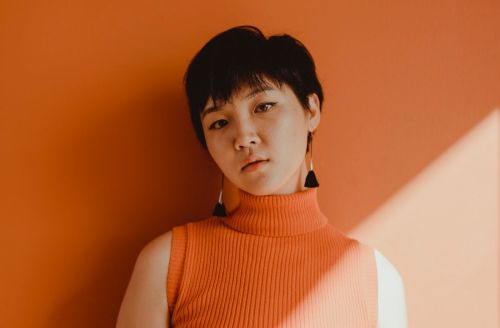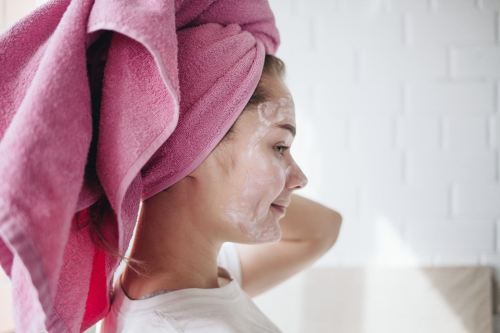Is it bad for your skin to stop a pimple before it comes to a head?
Dermatologists and facialists sound off on what happens when you stop a zit in the middle of its cycle.

The dreaded occurrence happened: I felt a pimple staking real estate under the surface of my skin. This set off a Pavlovian (or simply an acne-prone beauty editor) reaction—I immediately slathered on anti-inflammatory serums and salicylic acid gel in hopes that I could offset this sucker.
While acne normally manages to still form when I do this, my best-laid plans actually worked this time, and I stopped my pimple in its tracks. The downside: In its place was a darkened spot that was like an acne scar minus the actual acne. Was my preemptive strike to my skin’s detriment? I consulted some skin experts to find out.
Keep reading to see what actually happens when you stop a bump in its tracks.

When preventing acne actually works
Apparently, it’s only a myth that it’s bad news to stop your acne before it completes its cycle. “Your pimple does not need to come to a head—that’s a misconception that you have to get what’s in there out,” says Doris Day, MD, a New York City-based dermatologist. “Your body can take care of the pimple on its own.”
This Parisian Skincare Brand Is Launching in the United States for the First Time—Here’s What a Derm Wants You to Know

We’re Calling It: Cleansing Balms Are the Face Wash of the Future—Here Are 3 to Add to Your Cart

This Is the One Product That Scarlett Johansson Always Keeps in Her Purse and on Her Bedside Table

“If it’s halfway through the cycle of coming to a head, there’s a good chance it’s going to,” says Andrew Kelly, a skin therapist from NYC’s drive-by facial studio Heyday. “But if you start applying the spot treatment as soon as you feel one coming on, before the infection starts forming inside, then you could potentially stop it from forming a head.” Goals.
The thing is, the zit is festering there weeks before you even see it, Dr. Day explains. “If you treat it early enough, you can actually make it not come out completely or go away much faster.” The key (magical) ingredients to encourage this are, according to her, typically anti-inflammatory ones.
She says that you shouldn’t use these to simply spot treat, but rather to encourage the entire problematic area into a sort of glowy-skinned Hallelujah chorus. “Usually where you see a pimple, there’s one next to it that hasn’t been up yet,” she explains. “So if you treat the area before you see it, you’ll prevent it altogether, or at least minimize what comes up.”

Keeping pimples completely away
If you’re looking to keep acne at bay, all the time (who isn’t?), Dr. Day says to stick with the heavy-hitters. “If you have an ongoing acne problem, it’s important to treat it on an ongoing basis and then be more aggressive in areas where you get pimples,” she says. “Use something like retinol or Retin-A daily to help promote normalized skin cell turnover, which helps prevent pimples from coming out.” (Bonus points for having fine-line-fighting benefits, too.)
Kelly also recommends the inflammation-reducing duo of niacinamide and zinc. “When combined together, they’re a very powerful couple that reduces redness, evens your skin tone, and strengthens your skin’s barrier,” he explains. You can also fight inflammation with certain exfoliating agents. “The ones I’ve found effective have a mild combination of salicylic, lactic, or glycolic acid,” he says. “Those combined with the other two ingredients keep the area exfoliated to help relieve and prevent further congestion, and stave off those awful leftover red spots that we all want to get rid of.”
Exfoliation is definitely a key aspect of the deal. Dr. Day notes a beta-hydroxy acid face wash can work wonders: “A salicylic acid cleanser helps exfoliate the pores and clean out what’s in them,” she tells me. “It also makes pimples go away faster.” Though, of course, the goal is to keep everything calm, cool, and collected so nothing gets inflamed in the first place—hey, a girl can dream.
When you get that zit though, these are the best spot treatments, according to 7 dermatologists. And here are 4 all-natural acne treatments you already have in your kitchen.
Sign Up for Our Daily Newsletter
Get all the latest in wellness, trends, food, fitness, beauty, and more delivered right to your inbox.
Got it, you've been added to our email list.







